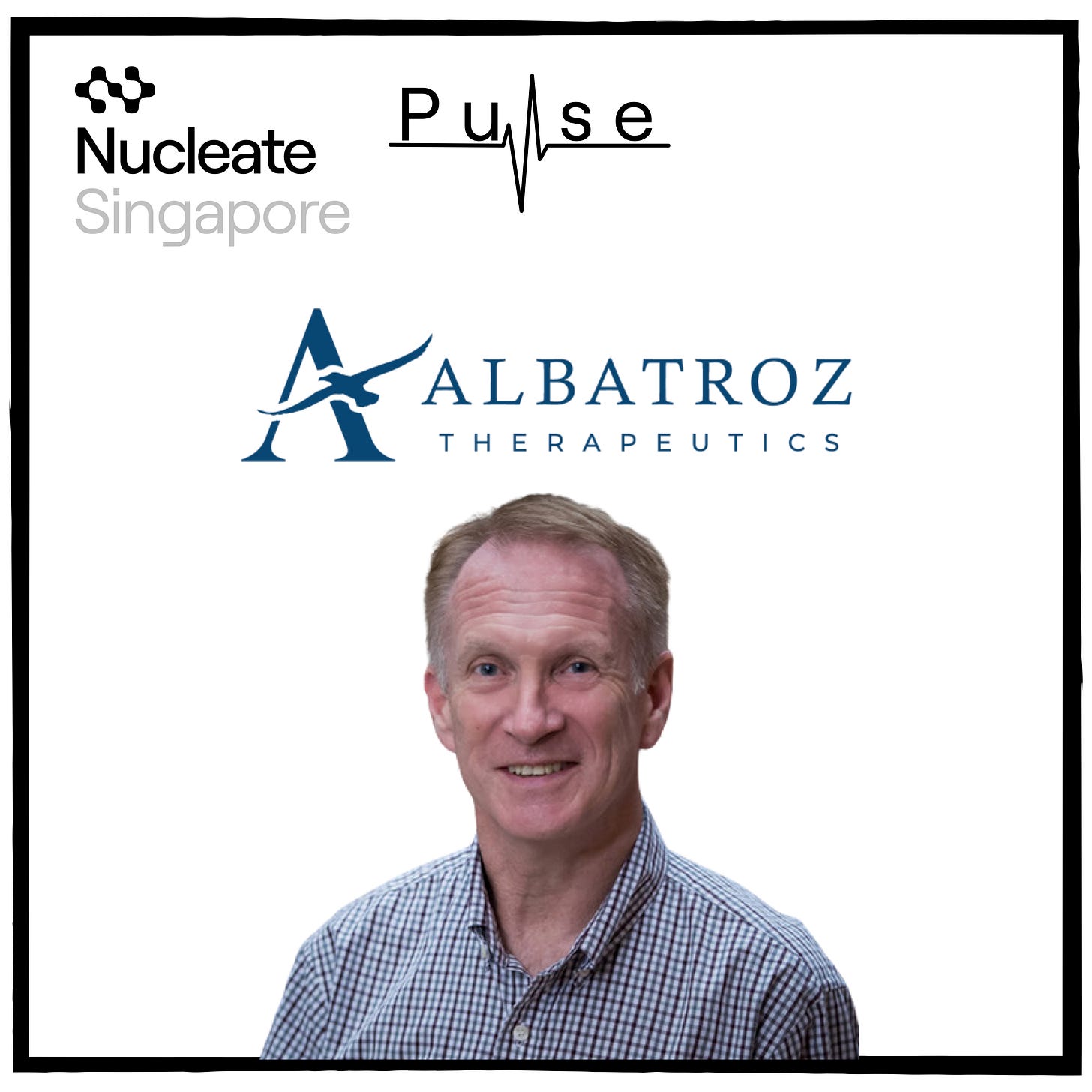The Nucleate Artery: We’re making April IP Month! We tell you everything about Intellectual Property - career advice and IP applications
Also, a two-part Nucleate Pulse episode with Guy Heathers from Albatroz Therapeutics!
We are The Nucleate Artery, a monthly newsletter focused on the latest Singaporean biotech research and events. Chat with us via our Slack community: @Liyana Ayub Ow Yong @Leong Kim Whye @Yeow Jiang @Ignacius Tay.
If you enjoyed reading this post, leave a comment and give us a like!
Before we get into this month’s updates, Selamat Hari Raya and Eid Mubarak to all our Muslim friends! We hope much feasting with family is underway and that more is to come this weekend and the next.
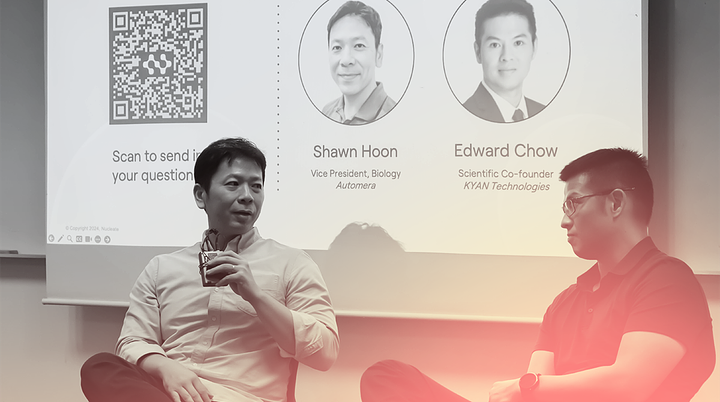
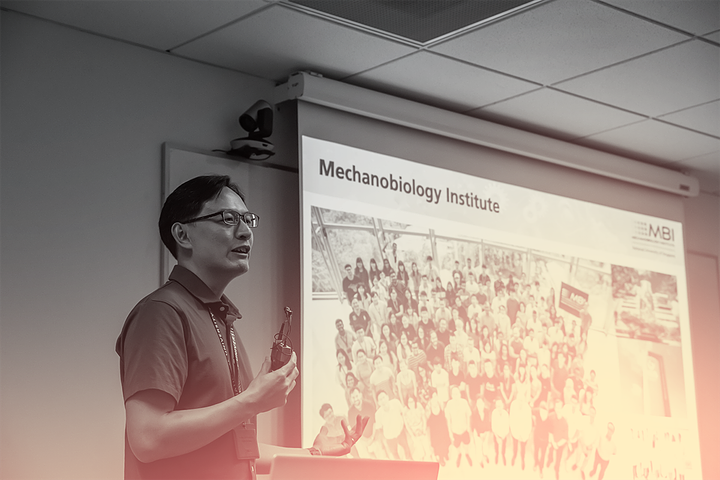
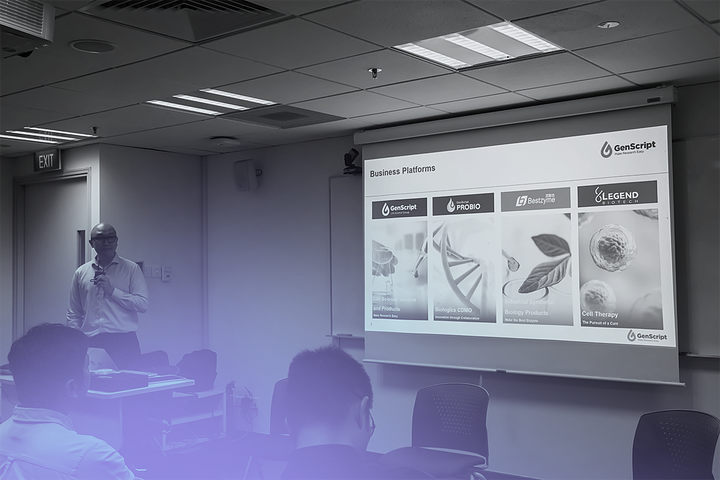
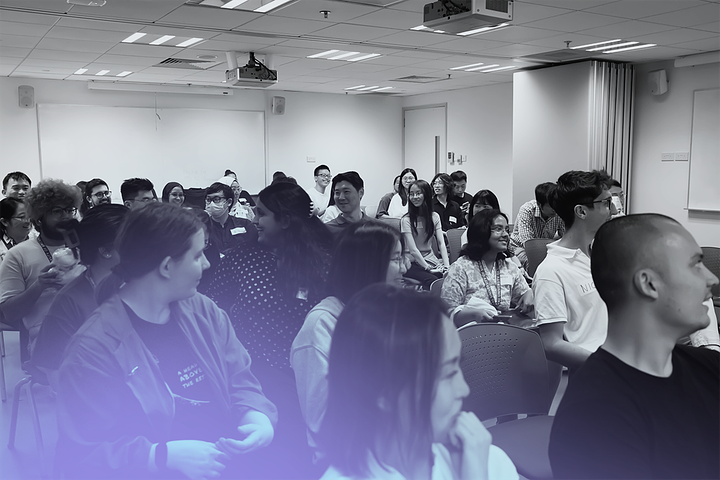
Nucleate SG hosted Dr Shawn Hoon from Automera, and Prof Edward Chow from KYAN Therapeutics during our Meet the Start-ups social event, done in partnership with NUS Mechanobiology Institute (MBI) and GenScript Asia Pacific at the end of March. Artificial Intelligence/Machine Learning (AI/ML) is becoming a popular tool (almost all pharma now have an AI/ML department!). Thus, deeper considerations about its use have been deliberated, including chokepoints that slow down its implementation, the lack of insurance for AI-driven treatment options, and the need for greater alignment of regulatory standards.
Join us for future Nucleate SG events to participate in in-person conversations. Follow us on our LinkedIn page to keep in the loop.
Now onto this month’s news: We’re making this month a little special by doubling down on intellectual property (IP). Here are some things you can expect:
The concrete steps to become a patent attorney
Common misconceptions about patent law as a profession
With that, let’s get into the research and takeaways of the month! Happy reading!
🥡 Event Takeaways
(Exclusive insights from biotech events in SG)
📜 Role of Patent Attorneys and the Landscape of Patent Law in Singapore - Part 1
Within the realm of intellectual property, patent attorneys play a pivotal role in safeguarding the fruits of innovation. Their work involves navigating the complexities of patent law to protect the unique ideas and inventions that drive progress. Join us as we delve into the essential roles and responsibilities of patent attorneys and the landscape of patent law, shedding light on their crucial contributions to advancing technology and innovations in Singapore. For this issue, we are exhilarated to have Dr. Violet Lee from Marks & Clerk Singapore LLP, a leading global intellectual property firm in Singapore, to share her journey with us.
Background
Dr. Violet Lee majored in Chemistry and Biological Chemistry and minored in Environmental Sustainability at NTU in 2016. She subsequently pursued a PhD under a scholarship from NUS Graduate School for Integrative Science & Engineering Programme (NGS-ISEP), where she graduated in 2021 with publications in many reputable international journals. She was recently awarded a Grad. Dip. in Intellectual Property and Innovation Management from SUSS earlier this year, all while training to become a registered Patent Attorney in Marks & Clerk Singapore LLP.
So today, we hope to discuss one of many paths beyond a PhD and share Violet’s journey towards being a Patent Attorney so that more of us can be aware of this exciting industry and its rewarding opportunities. We also hope to bring more awareness to the importance of protecting IP rights by demystifying the patent application process.
Top 10 things you didn't know about being a Patent Attorney
1. Patent attorneys work in a wide range of technical fields, including software, biotechnology, pharmaceuticals, electronics, and more.
Our patent team members all have technical backgrounds that cover a wide range of specialties, meaning we can advise on all kinds of technology, including mechanical and chemical engineering, electronics, software, chemical, biotechnology, materials, and more.
2. Patent attorneys spend all their time in the courtroom.
No, we spend most of our time helping and advising clients to obtain IP protection in Singapore or elsewhere. We also help them work out if a product or service is likely to infringe a patent – whether the patent is theirs or someone else’s. Clients who require court representation are usually serviced by IP lawyers, but we provide litigation support – meaning we help the lawyers understand the technical aspects of the patent in question, and we will help to prepare opinions on patentability and validity.
3. Patent attorneys are scientists or engineers by training, and legal expertise (i.e. an additional law degree) is essential.
While we do hail from a diverse range of technical expertise, a law degree is not necessary to become a registered patent attorney but one will have to pass the four-part Patent Agents Qualifying Examination to practise as a registered patent attorney.
4. Patent attorneys are only concerned with the technical aspects of inventions.
Not really – we also consider a client’s commercial goals so as to provide our client with a scope of patent protection aligned with these goals. We also conduct patentability and freedom-to-operate searches as well as analysis of these searches. We may also have to work to attract new business to the firm, which may involve meetings with a wide variety of people locally and internationally.
5. Having a patent attorney can increase the success rate of a patent application.
Absolutely. IPOS currently has a pro bono scheme (the Inventor Assistance Programme) to help youths in Singapore access patents through a qualified patent attorney. The reason for this is that the vast majority of inventor-drafted applications do not comply with the formal requirements necessary to become a patent and are normally too narrowly drafted to offer good commercial protection for the invention.
As hinted above, the patent process can be costly and complex. Engaging a patent attorney to draft and file a patent application is important to ensure that the filing is done in a timely and correct manner. Further, a patent application drafted by a patent attorney will usually include claims that better protect the inventor’s invention. Nevertheless, the success rate of a patent application being granted relies heavily on the novelty and inventiveness of the invention. Patent attorneys can help understand if the invention is patentable before filing an application.
6. Patent attorneys work alone
No. Patent attorneys need to work with stakeholders in their work – e.g. the inventors, the applicant company’s representatives, and foreign attorneys. In addition, the work can be multidisciplinary in nature, which requires collaboration between patent attorneys with different technical backgrounds.
7. Patent attorneys handle all aspects of intellectual property (IP) law.
It depends but patent attorneys generally specialise in patents.
8. Patent attorneys only work with local clients.
We work with local clients to obtain patents in Singapore or worldwide – where we work with a foreign patent attorney qualified to represent clients in that jurisdiction. We also help foreign applicants obtain patents in Singapore.
9. It is expensive to consult a patent attorney for professional assistance.
A patent attorney will charge a fee for preparing a patent specification, and additional fees will apply for the filing and prosecution of the patent application. However, the consequences of filing a patent application yourself may be more costly than a patent attorney’s fees. For instance, if a patent application is filed wrongly, it may be impossible to correct the mistake. As a result, the patent application may never be granted. In another scenario, a self-drafted claim set may not provide valuable commercial protection for your invention.
10. Patent attorneys have a wide range of duties to focus on: obtaining patents, patent enforcement, conducting infringement analysis, and representing clients in patent disputes or negotiations.
Mostly correct – we do not represent clients directly in patent enforcement but work with a lawyer who can represent our client in front of the court. Ditto for most patent disputes and negotiations – though we can represent clients in invalidity proceedings before IPOS.
🍽️ Digestibles
(Research that has been published within the past 2 months)
METABOLISM: Fighting Age-Related Muscle Decline
Sarcopenia is the age-related loss of skeletal muscle, affecting 10%-16% of those over 65 worldwide. Its progression can lead to frailty, compromising on mobility and the ability to manage everyday tasks independently in older individuals. In their noble pursuit to unravel the complexities of sarcopenia, an international consortium led by Prof. Vincenzo Sorrentino and Dr. Jerome Feige, uncovered lower trigonelline levels in seniors with sarcopenia. Using muscle cell cultures, worm, and mouse models, they demonstrated that trigonelline supplementation elevated NAD+ levels, bolstered mitochondrial energy production, and preserved muscle function with age. While the allure of trigonelline-rich sources like coffee and fenugreek seeds may be tempting, its impact on bodily levels remains inconclusive. Nevertheless, the newfound insight into trigonelline's role as an NAD+ precursor ignites hope for pioneering interventions, including trigonelline delivery and fortified foods, for muscle health and overall longevity.
One in four Singaporeans is expected to be over the age of 65 by 2030:
Delve into the consortium's earlier research, which underscores the pivotal role of diminished mitochondrial bioenergetic capacity in the shift from normal to pathological muscle ageing across diverse ethnic populations.
Learn how sarcopenia is relevant to the ageing population in Singapore in this review of local clinical practice.
Biophytis was authorised to run the first Phase 3 study in sarcopenia last year following promising results in their Phase 2 study of their small molecule drug, Ruvembri.
CANCER: Catch cancer in the headlights and seal its demise!
Photodynamic therapy (PDT) employs light-activated drugs, or photosensitizers (PS), to selectively target and eliminate cells. Conventionally, PS relies on oxygen in tissue to generate reactive oxygen species (ROS), which is crucial for inducing cell death. However, cancerous tumours often have low-oxygen environments, making it difficult for PS to generate ROS safely. To overcome this hurdle, Tang et al. devised a novel PS design strategy enabling oxygen-independent activation using an abundant molecule in the tumour environment, hydrogen peroxide. Their PS demonstrated activation at nearly 22 times lower light levels than the clinical standard. In pre-clinical mouse models, the PS exhibited tumour-targeting efficacy and non-toxicity, making these oxygen-independent PSs a promising avenue for advancing PDT as a cost-effective and minimally invasive modality for cancer therapy.
Illuminate your understanding of PDT:
Check out this concurrent study by Yi et al. using mitochondria-targeting PS with the benefits of inducing controlled inflammatory responses for oncotherapy
A comprehensive review of the existing studies and clinical trials on PDT for cancer treatment
ImPact Biotech's PS, Padeliporfin VTP, is undergoing Phase 3 trials for low-grade cancer in the renal pelvis/ureter (UTUC), with ongoing plans for investigations in high-grade UTUC, pancreatic (PDAC), and lung (NSCLC) cancer.
🎧 Nucleate Singapore Pulse
Advancing Singapore's biotech ecosystem with Albatroz Therapeutics' Dr. Guy Heathers
This month, we interviewed Dr. Guy Heathers, Co-Founder and Chief Business Officer at Albatroz Therapeutics, a Singapore-based biotechnology company pioneering first-in-class antibody therapeutics for solid tumours and arthritic disorders. Dr. Heathers was present at the inception of Singapore's ambitious biotech journey. He shared his first-hand insights into the growth of Singapore's biotech scene and the industry's hurdles. He also discussed the strategic contrasts between globally oriented biotech companies and those focusing on local markets. His perspectives offer a comprehensive view of Singapore's biotech landscape and the strides being made in this vibrant ecosystem.
View show notes and transcript
📆 Events happening this month
Fireside chat
BioMedTech Market Insights: Uncovering Global Opportunities | co11ab
(18 Apr, 4:00 PM - 5:30 PM, in person at Singapore 308232)
2024 CoRE Conversation with Dr Margaret Hamburg | Duke-NUS
(30 Apr, 8:00 PM - 9:00 PM, online via Zoom)
Interview
#askmeabout Starting Local: Building a Medtech in Singapore | Nucleate SG
(26 Apr, 3:00 PM - 4:00 PM, Virtual, Singapore Life Sciences Community Slack workspace)
Symposium
Clinical Opportunities of siRNA and Oligo Therapeutics | NATi
(17 Apr, 9:00 AM - 6:00 PM, in person at Singapore 138664)
Webinar/Workshop
2024 APAC Network Webinar Series | The UK’s Innovative Devices Access Pathway Pilot | Duke-NUS
(16 Apr, 4:00 PM - 5:00 PM, online)
AngelCentral Startup Series: Fundraising Your First Million Dollars | Startup SG
(25 Apr, 9:30 AM, in person at Singapore 139951)
Challenge
CHI X SIT Healthcare Sustainability Challenge | CHI & SIT
(By 27 Apr, 23:59)







